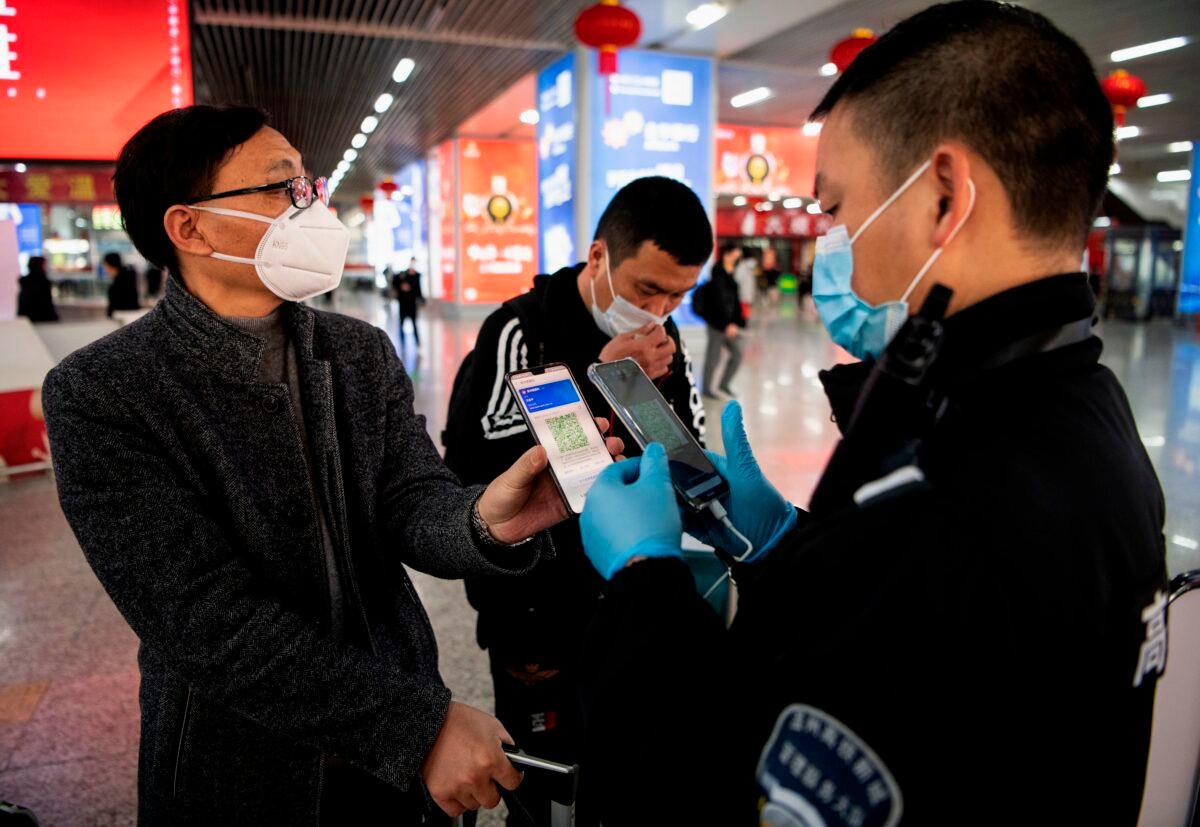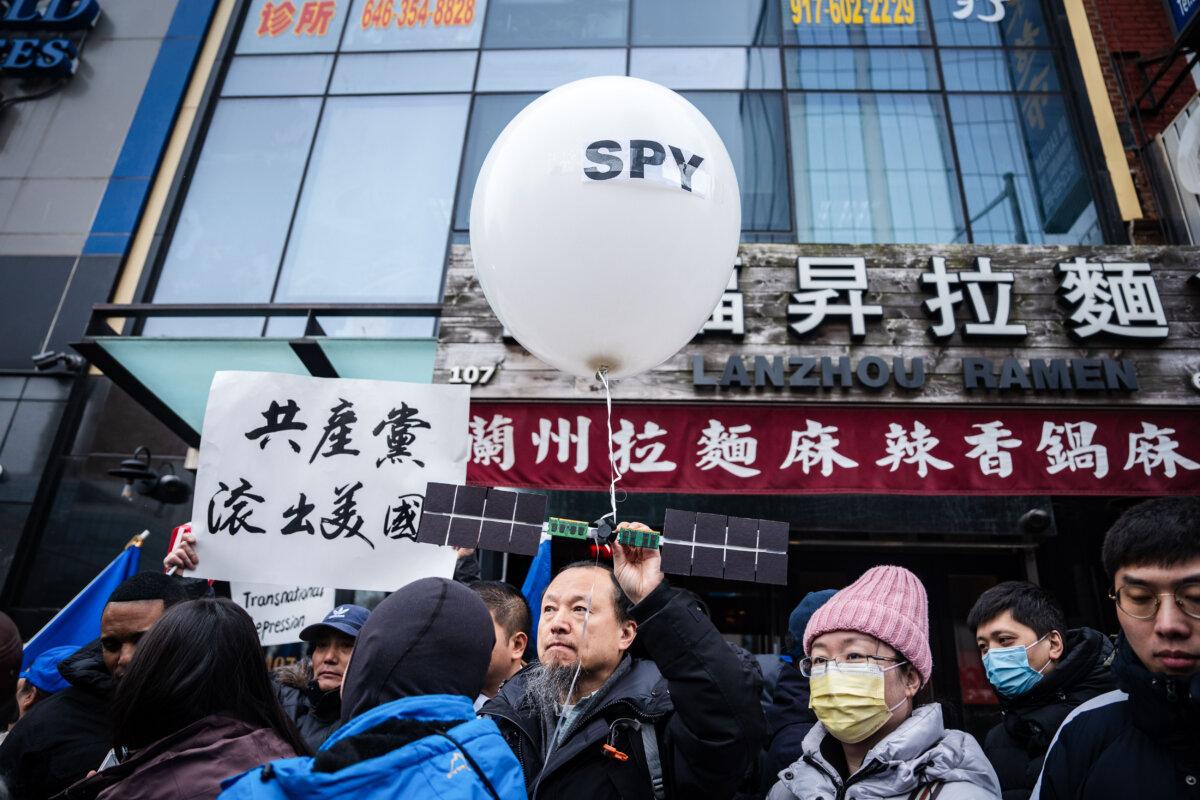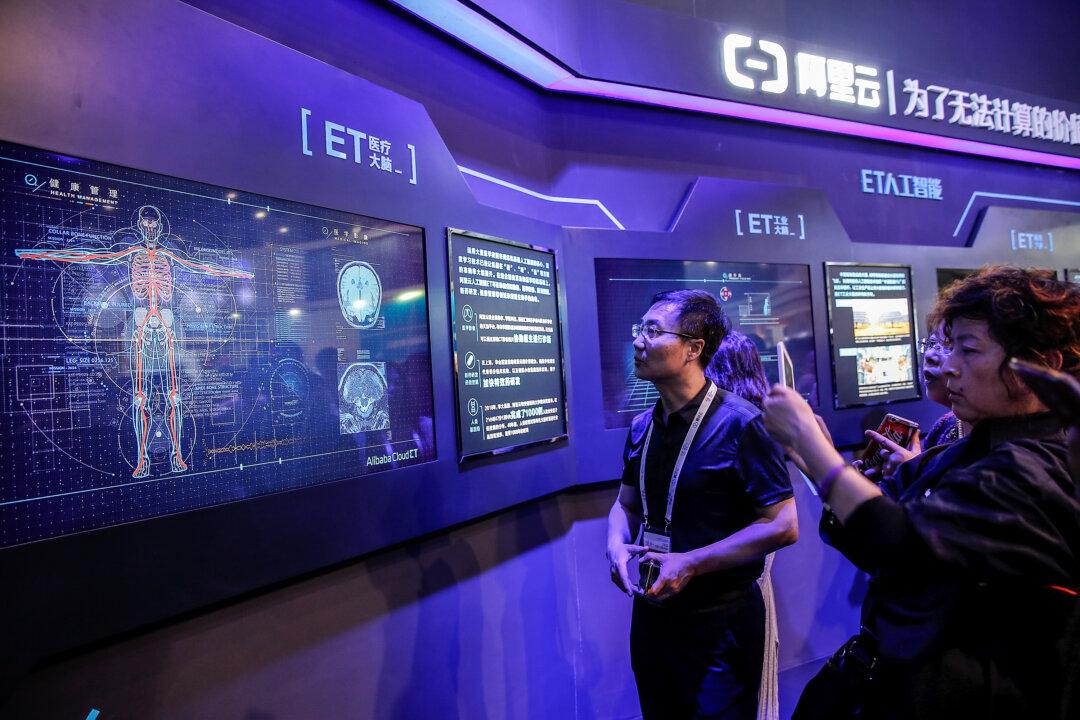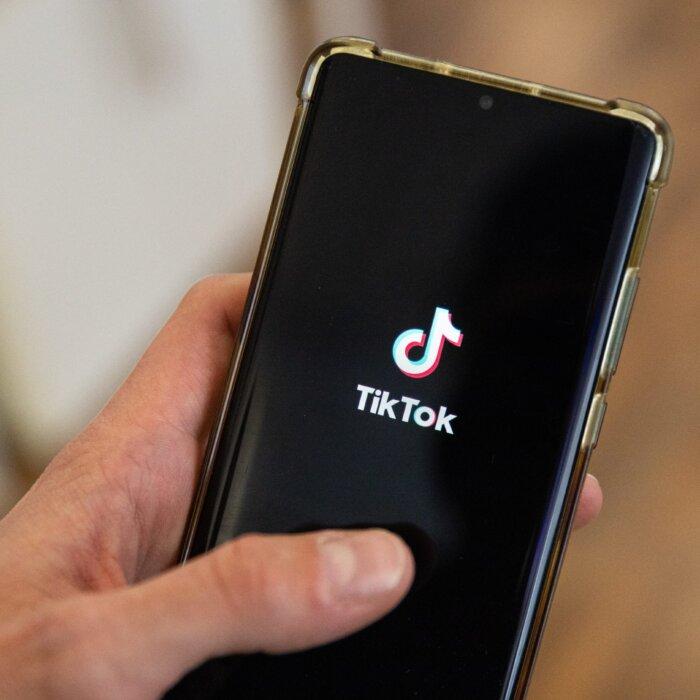The Chinese Communist Party’s digital tools and data manipulation enable it to conduct transnational repression, according to several experts recently interviewed by The Epoch Times.
CCP Monitors Big Data
For years, Chen Ende, a native of Zhengzhou city in Henan Province, worked on various technology projects, including the data backend of Alibaba Cainiao Technology and the government affairs platform of Tianque Technology.In 2018, Chen joined Cainiao Network Technology, the logistics arm of Alibaba, China’s leading e-commerce giant that operates various businesses worldwide.
His job was to collect and organize user logistics information and sell it to domestic express delivery companies.
Chen said he was surprised that the company’s internal system could access a complete set of user information, including purchase records, product details, recipient names, phone numbers, and addresses.
He noted that Alibaba has a political branch, or a committee tied to the ruling Chinese Communist Party (CCP), which ensures the company adheres to the CCP’s ideology, and that data can be provided to CCP authorities upon request.
“As long as the government wants to target someone, all this information can be reported immediately, and no one will refuse [the authorities’ request],” Chen told the Chinese-language edition of The Epoch Times.
At the end of 2019, Chen joined Tianque Technology, headquartered in Hangzhou. The company provides digital services to government agencies.
In Zhejiang Province, the company is responsible for the Chinese regime’s grid management system, which divides communities into smaller and manageable units, or grids, to monitor the population, housing, and social activities.
This system can report individuals behaving in a manner deemed “unusual” by the authorities in real-time and monitor them, Chen said. The system is known to track dissidents and critics of the CCP.
During the COVID-19 pandemic, Chen’s project team worked on Alibaba’s health code system. The team monitored the statistical data daily and found discrepancies between the number of infections and the number of new cases.
“There were new cases every day, but it was shown as zero,” he said.
The CCP has a history of concealing information and publishing unreliable data, including its underreporting of COVID-19 infections and related deaths since the onset of the pandemic in early 2020.
The health code system, which was based on the mass testing and vaccination status that Beijing implemented during the pandemic, restricted the population’s movement.
Chen criticized the CCP’s draconian lockdown policy, noting that the health code contributed to tragedies such as starvation and lack of access to medical care.
He said he told the leadership at Tianque that their work was “aiding and abetting evil”—a view that he said the company considered to be “incorrect.” He was fired in July 2020.

CCP Manipulates Data
The CCP’s manipulation and falsification of data indicate systemic flaws in its governance, according to Sun Kuo-hsiang, a professor of international affairs and business at Nanhua University in Taiwan.“Official data distortion leads to policymaking based on false foundations,” which, in turn, “continues to cause social conflicts,” he recently told the Chinese-language edition of The Epoch Times.
The CCP’s falsification of data can have significant global consequences, too, he said.
“As the world’s second-largest economy, China’s economic data are widely relied upon by other countries’ governments, companies, and organizations,” Sun said.
Digital Tyranny
Chen said that since 2016, the CCP has been promoting its digital yuan, or digital wallet, and on July 15, it officially launched its digital ID. The system has covered 17 provinces across China and is connected to 67 commonly used applications, including WeChat, Taobao, Xiaohongshu, China Railway 12306, the CCP’s State Council, and local government platforms, according to Chen.He warned that once digital IDs become mandatory across all platforms, “if you find yourself on the CCP’s ‘blacklist’ one day, the regime won’t need to send the police to arrest you.”
“All it will have to do is sit at a desk and use a mouse to block your digital identity, effectively stripping you of all your freedoms and social rights,” Chen said.
“You can’t work, shop, use public transportation, or see a doctor ... even though you are alive, in this information age, you are as good as dead.”
Sun pointed out that Chinese apps and platforms, such as WeChat, QQ, and Alipay, all use real-name systems and must transmit data back to the CCP, according to the regime’s security law.
“If overseas Chinese still use these platforms, their messages, geographic locations, and contacts can be tracked by the regime,” Sun warned.
On a global scale, he stated that through Chinese companies such as cloud service providers and communication equipment suppliers, the CCP can gain access to other countries’ markets and secretly obtain their data.
Transnational Repression
Chen left China for the United States in 2023 and joined an overseas branch of the China Democratic Party, which was formed in China in 1998 with the goal of promoting democracy, but was outlawed by the CCP. He participated in the production of anti-communist videos.In 2025, Chen said that his family in China, along with the families of three colleagues who worked with him on producing the videos, faced threats from the Chinese police, who pressured them to stop creating the materials.
“I would rather die on the road for freedom than live in lies and fear,“ he said. ”We will fight to the end.”
Sun said the CCP combines data with threats in its transnational repression.
“It uses data to gather information about the relatives, property, and social relationships of targeted overseas dissidents, and then employs this information to threaten them,” he said.
He added that the CCP also uses large-scale public opinion manipulation to spread rumors, discredit dissidents, or cyberbully them through online trolls and robot accounts.

Chinese authorities collect overseas user data and personal information, “including biometric data, social media activities, and communication records, through its controlled technology companies TikTok and WeChat, to track overseas dissidents and ethnic minority groups such as Uyghurs, Tibetans, [and] Falun Gong members,” Hu Decheng, a former general manager of a communications company in Heilongjiang Province, recently told the Chinese-language edition of The Epoch Times.
Fearing that Falun Gong’s popularity posed a threat to the CCP’s rule, the regime launched a brutal campaign to eradicate the practice in July 1999.
The digital methods used by the CCP include cyberattacks on overseas dissidents, the spread of false information, and intimidation and censorship through social media platforms, Hu said.
In its transnational repression, he said, “the CCP combines advanced data and network technologies to form a complex and efficient global monitoring and suppression network.”






